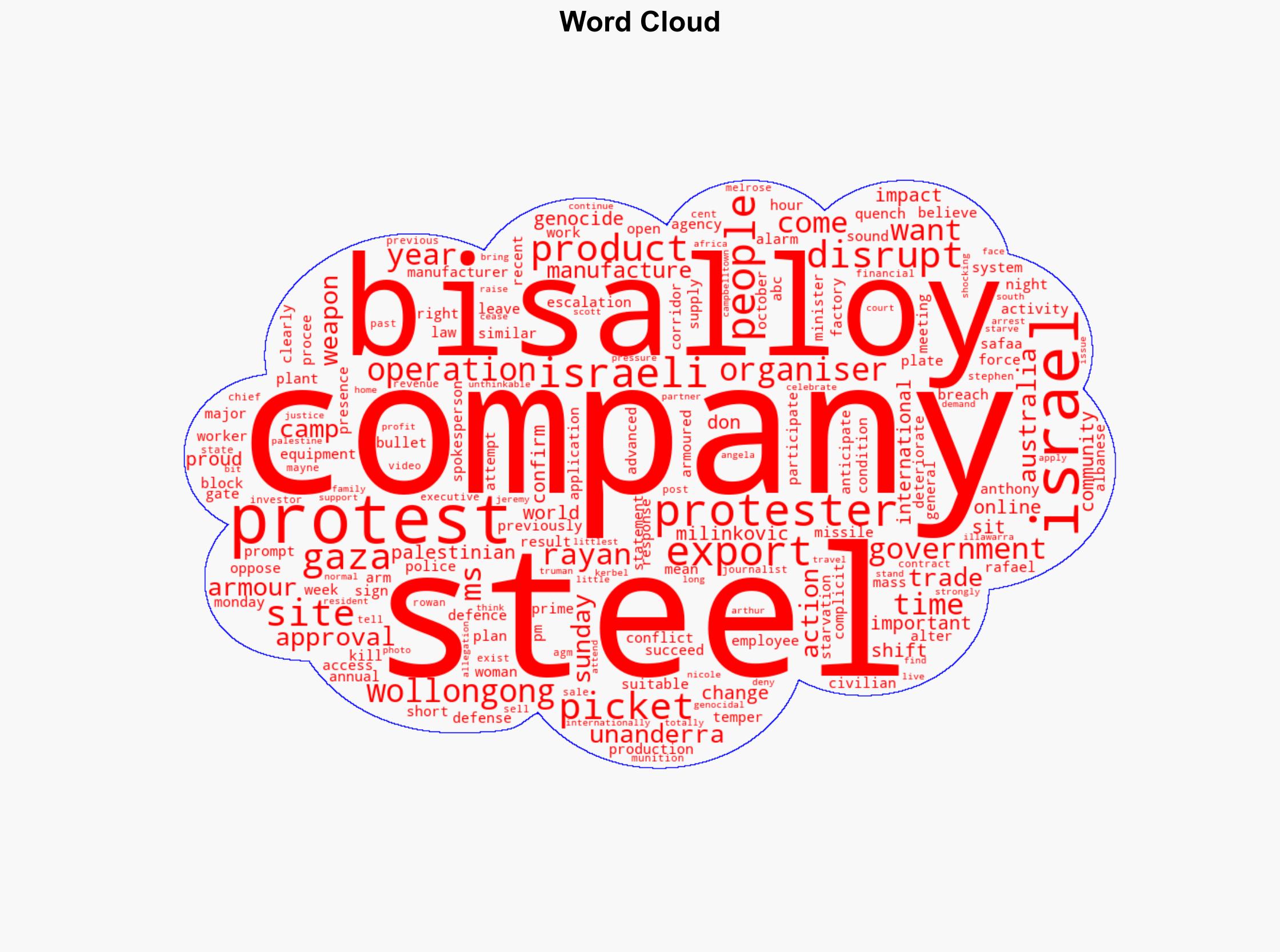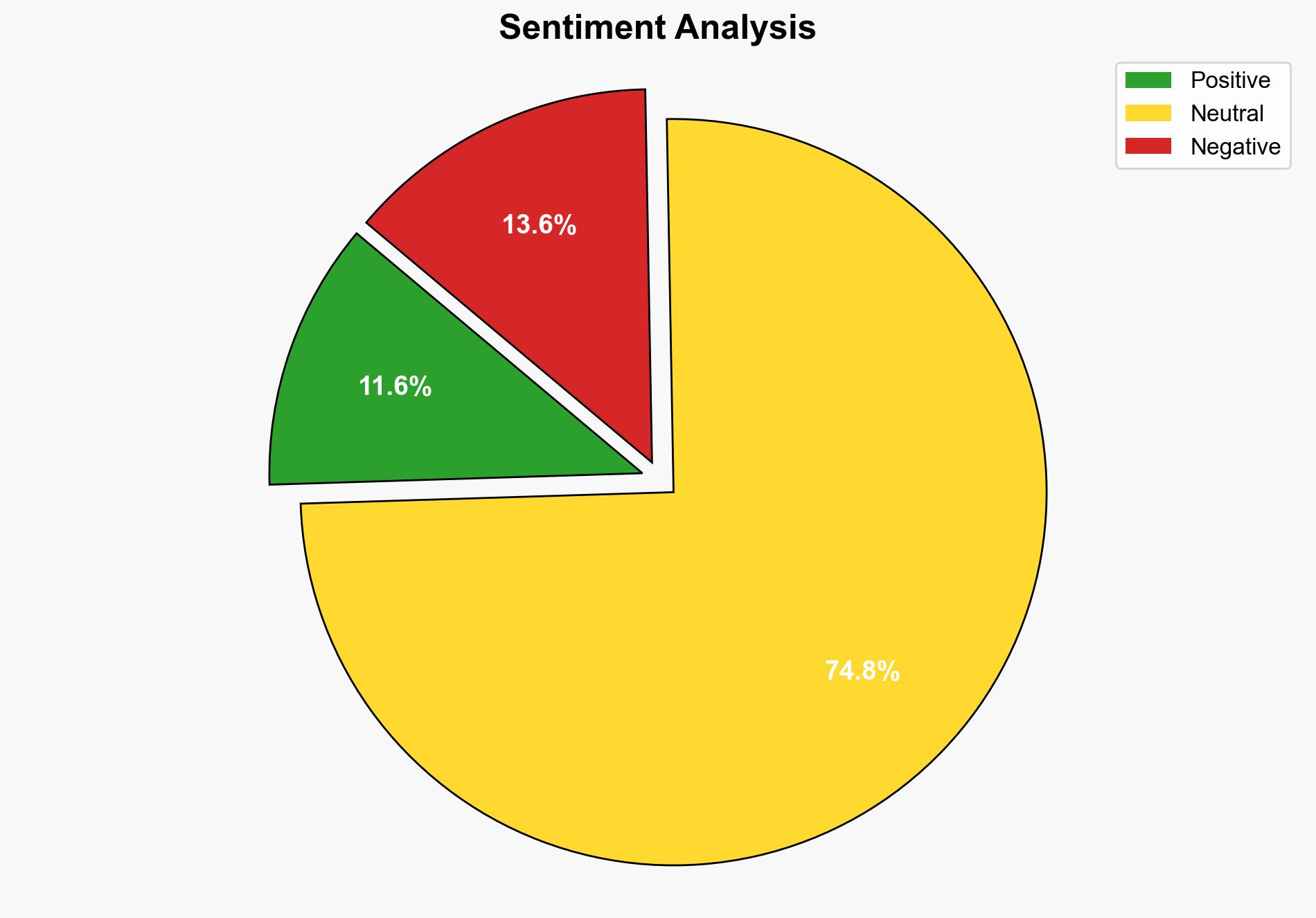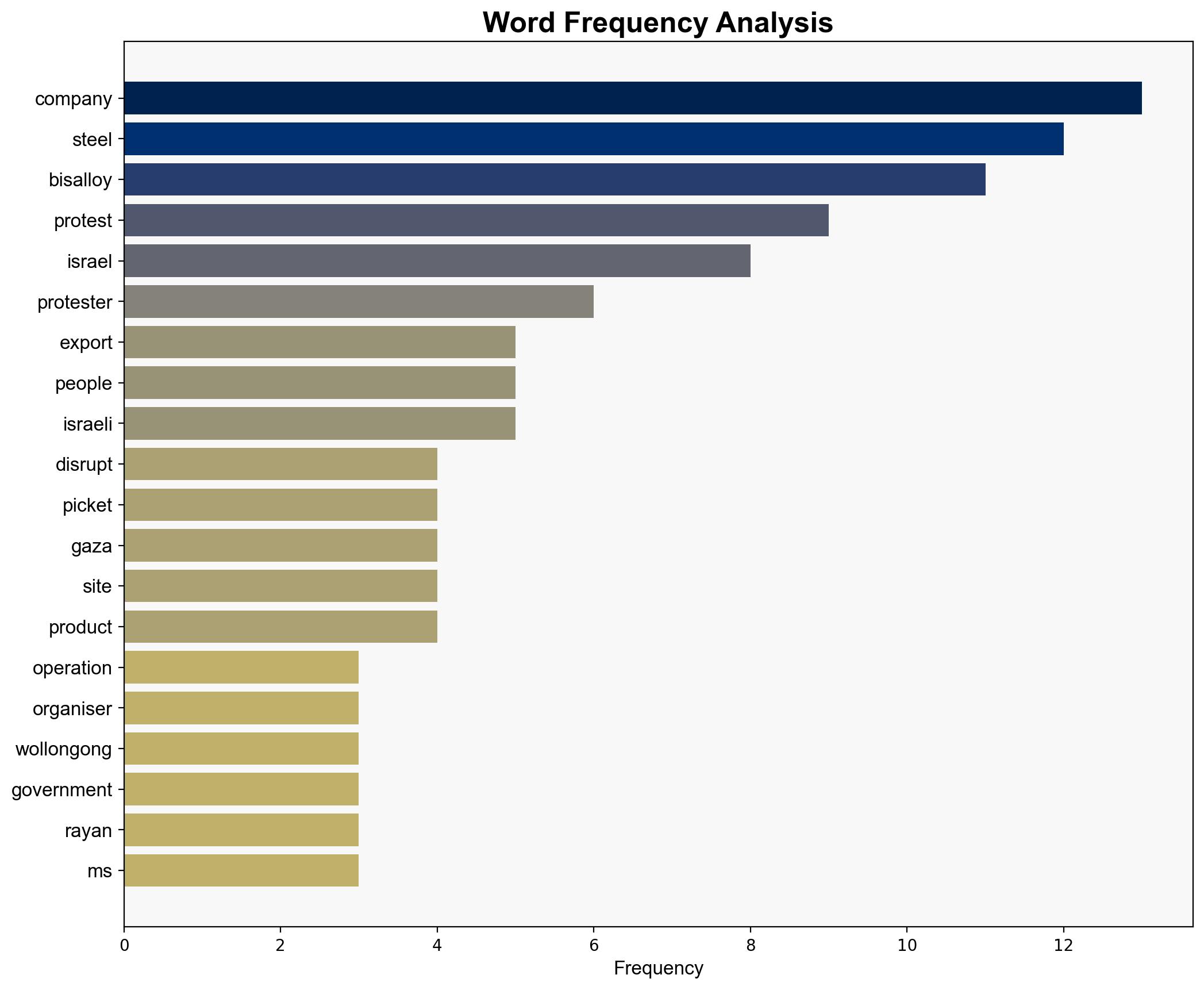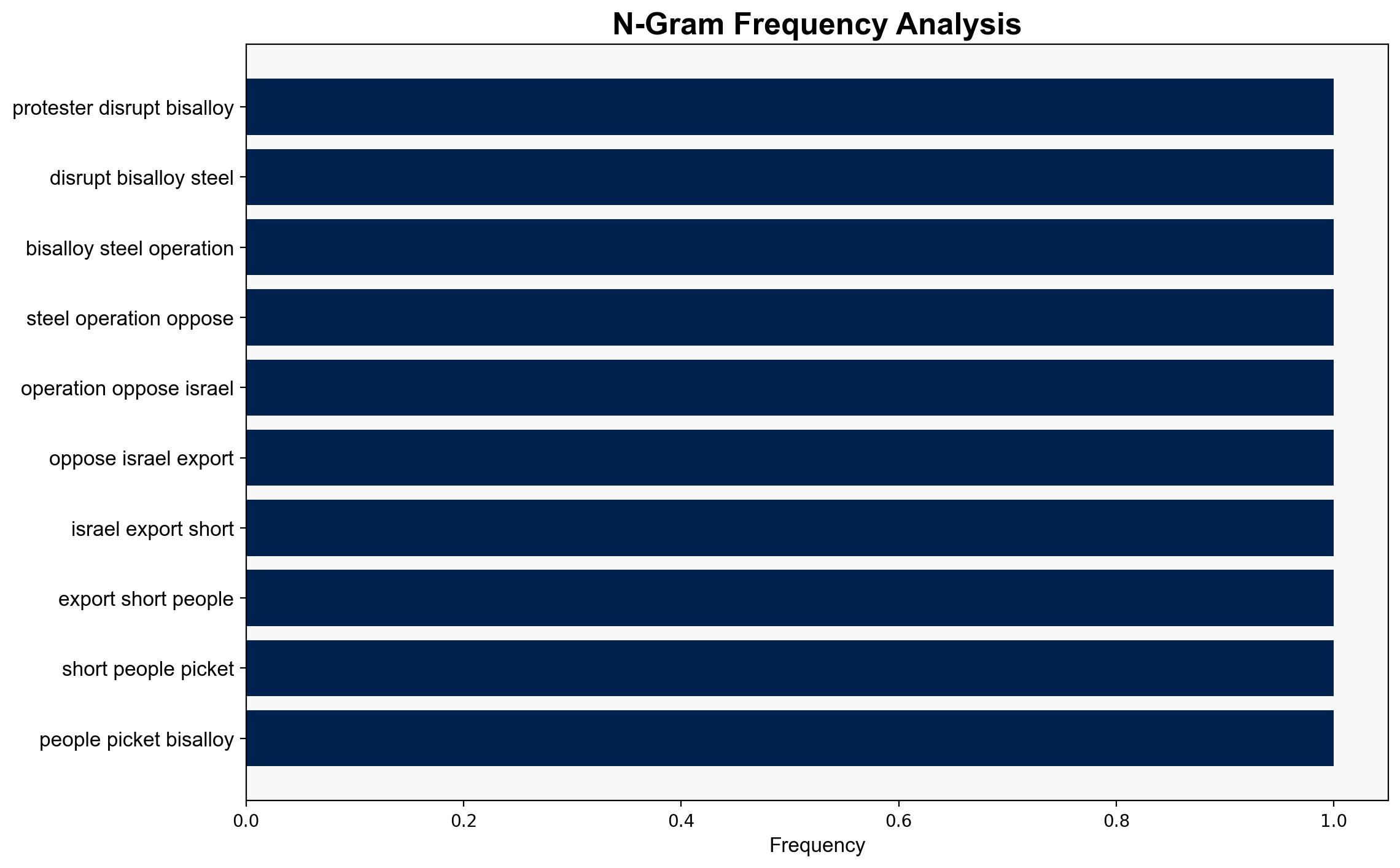Protesters block gates of armoured steel plant over Israeli exports – ABC News (AU)
Published on: 2025-07-28
Intelligence Report: Protesters block gates of armoured steel plant over Israeli exports – ABC News (AU)
1. BLUF (Bottom Line Up Front)
The protest at Bisalloy Steel highlights tensions over military exports to Israel amidst the ongoing Gaza conflict. The most supported hypothesis is that the protests are primarily driven by humanitarian concerns and opposition to perceived complicity in the conflict. Confidence in this assessment is moderate due to potential underlying political motivations. Recommended action includes monitoring for escalation and engaging with stakeholders to address concerns.
2. Competing Hypotheses
1. **Humanitarian-Driven Protests**: The protests are primarily motivated by humanitarian concerns over the situation in Gaza, with activists aiming to halt exports they believe contribute to civilian casualties.
2. **Politically-Driven Protests**: The protests are largely politically motivated, aiming to pressure the Australian government and companies to change foreign policy and trade practices with Israel.
Using ACH 2.0, the humanitarian-driven hypothesis is better supported by the explicit statements of protest organizers and participants, who emphasize civilian impact and humanitarian issues. However, the political hypothesis cannot be dismissed, as geopolitical dynamics often underpin such protests.
3. Key Assumptions and Red Flags
– **Assumptions**: It is assumed that the protesters’ primary motivation is humanitarian, based on their statements. Another assumption is that Bisalloy’s exports significantly impact the conflict.
– **Red Flags**: The absence of detailed data on the actual impact of Bisalloy’s exports on the conflict. Potential bias in protester statements, which may obscure political motives.
– **Blind Spots**: Lack of insight into the broader geopolitical strategies of protest organizers and potential foreign influence.
4. Implications and Strategic Risks
– **Economic**: Disruptions at Bisalloy could affect its financial performance and investor confidence.
– **Geopolitical**: Continued protests may strain Australia-Israel relations and influence domestic policy debates.
– **Psychological**: The protests could polarize public opinion, affecting community cohesion and perceptions of national security.
– **Escalation Scenarios**: Increased protest activity could lead to heightened tensions and potential clashes with law enforcement.
5. Recommendations and Outlook
- Engage with community leaders and protest organizers to address concerns and explore dialogue opportunities.
- Monitor for signs of protest escalation or foreign influence.
- Scenario Projections:
- **Best Case**: Protests lead to constructive dialogue and policy adjustments without significant disruption.
- **Worst Case**: Escalation results in violent clashes and significant economic impact on Bisalloy.
- **Most Likely**: Continued protests with moderate disruption, leading to increased public debate on military exports.
6. Key Individuals and Entities
– Safaa Rayan: Protest organizer emphasizing humanitarian concerns.
– Rowan Melrose: Bisalloy Steel’s chief executive, involved in addressing the company’s export practices.
– Jeremy Kerbel: Picket organizer with a history of protest activity.
7. Thematic Tags
national security threats, geopolitical tensions, humanitarian concerns, military exports





